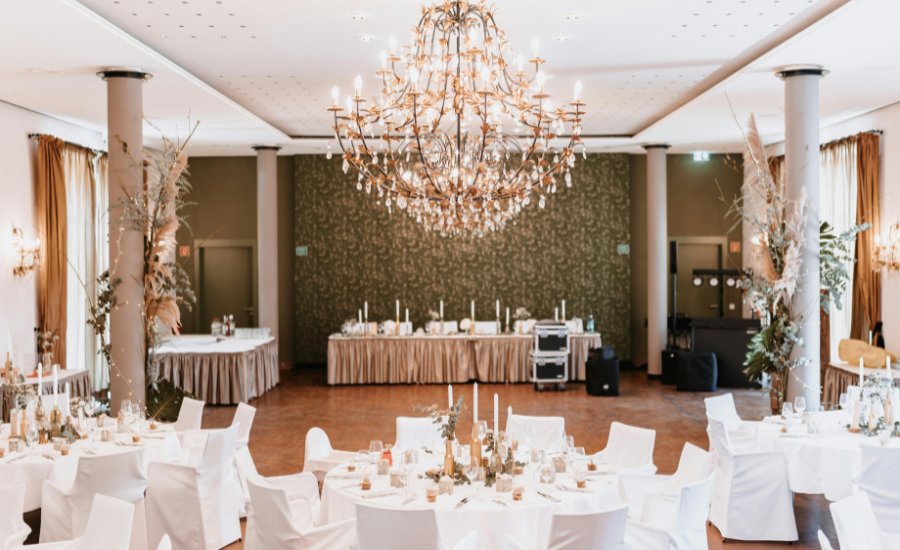The venue you choose can make or break your event. Whether it’s a corporate conference, wedding, product launch, or birthday celebration, the venue sets the tone, influences logistics, and affects the overall experience for your guests. But with countless options available—banquet halls, outdoor gardens, conference centers, virtual platforms—how do you decide?
Here’s a complete guide to help you choose the perfect venue for any event, based on your needs, goals, and budget.
Define the Purpose and Type of Event
Before you even begin searching for venues, clearly define the nature of your event. A formal business seminar will require a very different setup from a relaxed family reunion or a product launch.
Ask yourself:
- Is the event formal or casual?
- Is it corporate or social?
- Will it involve presentations, dining, dancing, or networking?
- Will it be indoors, outdoors, or hybrid?
Clarity at this stage helps narrow down suitable venues that match the tone and function of your event.
Know Your Guest List
An accurate estimate of your guest count is essential. Too small a venue can make the event feel overcrowded; too large, and it may feel empty and impersonal.
Consider:
- Venue capacity (check fire and safety limits too)
- Accessibility for differently-abled guests
- Space for seating arrangements, activities, and movement
Also, if your guest list includes out-of-towners, consider venues near hotels or public transport options.
Location, Location, Location
Your venue’s location affects attendance and logistics. Ideally, choose a place that’s:
- Central or easily accessible
- Safe, especially for evening events
- Equipped with ample parking or valet service
- Near airports/train stations for traveling guests (if applicable)
If it’s a destination event, factor in travel times and offer transport recommendations to guests in advance.
Set a Realistic Budget
Your venue often takes up a significant portion of the event budget, sometimes 30–50%. Be clear about your financial boundaries upfront.
Things to include in your budget:
- Venue rental fee
- Security deposits
- Cleaning/maintenance charges
- In-house catering, AV, and furniture (if included)
- Any required permits or insurance
Always ask what’s included and what’s extra. A slightly more expensive venue that includes tables, tech, and staff may end up costing less than a cheaper one requiring outside rentals.
Consider Amenities and Services
An ideal venue offers essential amenities, such as:
- Audio-visual equipment (mics, speakers, projectors)
- On-site kitchen or catering
- Restrooms (clean and sufficient in number)
- Wi-Fi
- Storage areas for supplies or equipment
Some venues offer packages that include decoration, lighting, furniture, or even an event coordinator. These services can significantly reduce your planning workload.
Ambience and Aesthetics
The venue should reflect the style and mood of your event.
- A modern art gallery suits a product launch or fashion show.
- A rustic barn or open garden may be perfect for a wedding.
- A minimalist conference room fits a corporate workshop.
Pay attention to lighting, ceiling height, architectural details, and overall ambiance. The more aligned it is with your event vision, the less you’ll have to spend on decorations.
Check Acoustics and Lighting
Poor acoustics or harsh lighting can ruin the guest experience, no matter how beautiful the venue is.
- Visit the venue at the time your event will take place to get a real feel.
- Ask to test sound systems or conduct a walkthrough with your planner.
- Ensure lighting is adjustable and suitable for the mood—dim for evening parties, bright for daytime workshops.
If it’s an outdoor venue, ensure there’s a contingency plan for weather changes—like a tented area or indoor backup.
Ask About Restrictions
Every venue has its own rules and limitations, which can affect your planning. Before signing, ask:
- Are there time limits or curfews?
- Are there preferred or exclusive vendors?
- Is alcohol permitted?
- Are there noise restrictions?
- What’s the cancellation or refund policy?
Knowing these details prevents last-minute surprises and allows you to plan smoothly.
Read Reviews and Ask for Referrals
Research online reviews, testimonials, or event photos. If possible, speak to someone who has hosted a similar event at the venue. Personal experiences can offer insights into things not listed in brochures—like staff responsiveness or how the venue handles emergencies.
Visit in Person
Pictures and websites can be deceiving. Always schedule a site visit to:
- Walk through the space
- Visualize your setup
- Spot any deal-breakers (like poor lighting, odd layouts, or limited storage)
Take note of parking, accessibility, and restrooms during your visit.
Final Thoughts
The perfect venue is more than just a backdrop—it’s a key part of the experience you’re creating. Take your time, ask the right questions, and align your choice with the event’s goals, audience, and budget.
With careful planning, the right venue will not only meet your practical needs but also elevate your event, leaving a lasting impression on everyone who attends.


